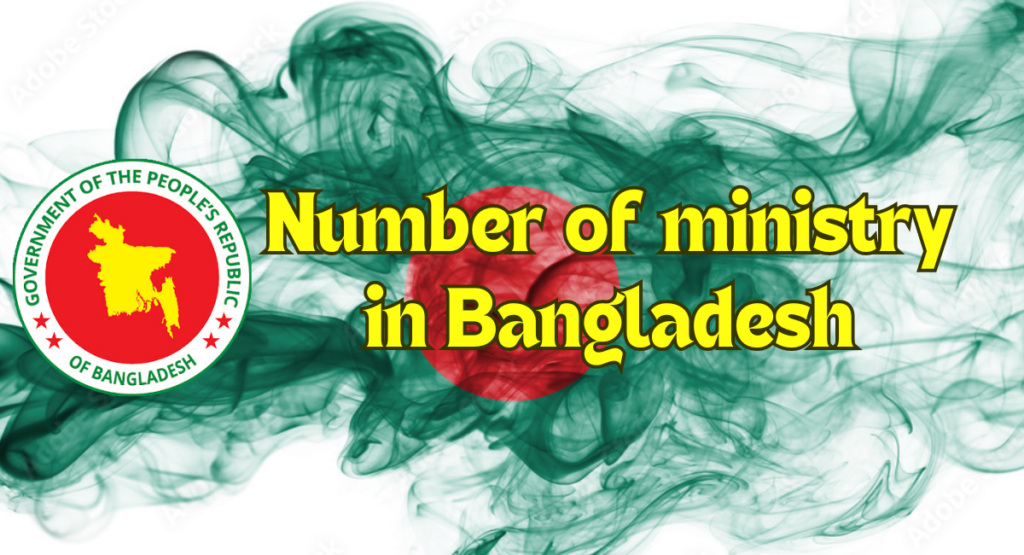The Ministry of Primary and Mass Education of Bangladesh is dedicated to ensuring quality primary education for all children in the country. The ministry focuses on the development of primary education and the improvement of institutional infrastructure through various initiatives.
Establishment and History
The Ministry of Primary and Mass Education was established in 1992 with the mission of providing education for all. Since its founding, the ministry has worked toward increasing access to education, training teachers, and improving curricula to ensure quality primary education for every child in Bangladesh.
Address
Ministry of Primary and Mass Education
6th Floor, Building No. 06, Bangladesh Secretariat, Dhaka 1000, Bangladesh.
Number of Officers and Employees
The Ministry employs around 3,000 officers and staff who are actively involved in the development and management of primary education across the country.
Objectives
- Ensure Quality Primary Education for All: The ministry aims to provide equal access to quality education for every child in Bangladesh.
- Expand Educational Opportunities: It works to increase the availability of primary education, ensuring no child is left behind.
- Develop Educational Infrastructure: By improving school facilities and resources, the ministry ensures a better learning environment.
- Train Teachers: The ministry provides ongoing training for teachers to enhance their teaching skills and effectiveness.
- Eliminate Illiteracy: The ministry actively works towards reducing illiteracy through formal and non-formal education programs.
Departments under the Ministry of Primary and Mass Education
The Ministry of Primary and Mass Education operates through 6 key departments, each playing a crucial role in the management and improvement of primary education and mass literacy programs.
1. Directorate of Primary Education
- Established: 1981
- Address: Mirpur, Dhaka
- Members: 10,000
- Objective: Supervise and enhance the overall development of primary education in Bangladesh.
- Subordinate Office: Upazila Primary Education Office
- Website: www.dpe.gov.bd
2. Bureau of Non-Formal Education
- Established: 1995
- Address: Dhaka
- Members: 2,000
- Objective: Expand opportunities for non-formal education and work toward eliminating illiteracy.
- Subordinate Office: Coordination Division for Non-Formal Education Institutions
- Website: www.bnfe.gov.bd
3. National Curriculum and Textbook Board (NCTB)
- Established: 1951
- Address: Dhaka
- Members: 1,500
- Objective: Design curricula and prepare textbooks for primary education in Bangladesh.
- Subordinate Office: Curriculum Development Division
- Website: www.nctb.gov.bd
4. Primary Education Development Program
- Established: 2000
- Address: Dhaka
- Members: 500
- Objective: Improve the infrastructure of primary education and enhance its quality.
- Subordinate Office: Development and Training Division
- Website: www.pedp.gov.bd
5. National Academy for Primary Education (NAPE)
- Established: 1978
- Address: Gazipur
- Members: 1,200
- Objective: Provide training for primary school teachers and conduct educational research.
- Subordinate Office: Teacher Training Division
- Website: www.nape.gov.bd
6. Mass Education Development Division
- Established: 1992
- Address: Dhaka
- Members: 800
- Objective: Promote mass literacy and implement educational policies.
- Subordinate Office: Educational Policy Implementation Division
- Website: www.gpsd.gov.bd
Ministry of Primary and Mass Education
The Ministry of Primary and Mass Education of Bangladesh is committed to ensuring quality primary education and expanding educational opportunities. By focusing on teacher training, curriculum development, and infrastructure improvements, the ministry aims to create a solid foundation for the country’s future. Additionally, the Bureau of Non-Formal Education plays a vital role in combating illiteracy, ensuring that both formal and non-formal educational pathways are available to all.



